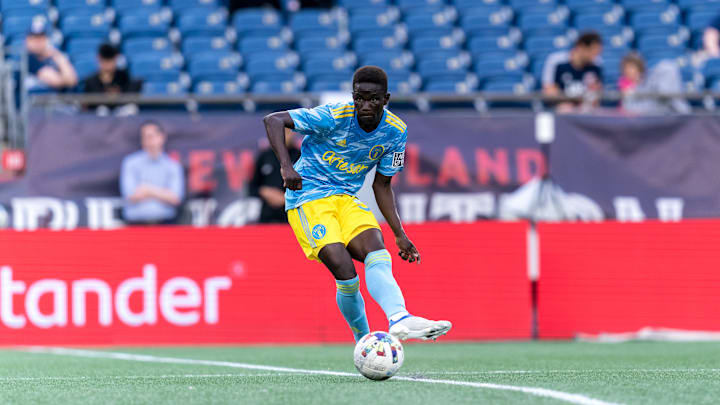If you still think Major League Soccer (MLS) is just a retirement league where aging stars kick around, it’s time to rethink that narrative. The transfer of 18-year-old Bajung Darboe from Los Angeles Football Club (LAFC) to German powerhouse Bayern Munich has not only shaken up the soccer market but also cast a bright spotlight on the MLS as a world-class talent incubator.
Bayern Munich didn’t target Darboe by accident. Their partnership with LAFC, known as the “Red & Gold Football” initiative, was built precisely for moments like this; it’s a golden bridge connecting MLS’s brightest prospects to European soccer.
Follow MLS Multiplex on X (Twitter).
But don’t think this is just about German strategy. For LAFC, losing Darboe isn’t a setback; it’s a major win. Why? Because showing the world they can develop players who end up at clubs like Bayern Munich is a marketing coup.
Gone are the days when MLS was seen as a retirement haven for big names like Beckham and Pirlo. Today, it’s a fertile ground where young players sow their dreams, and European giants reap the rewards.
Darboe’s journey is a testament to how the system works. He started in MLS NEXT Pro, the league’s development arm, and shone with LAFC 2. He didn’t even need years in the senior MLS league to get noticed. That speaks volumes about how well these developmental leagues are functioning as pipelines to filter the best talent and put them in front of international scouts.
And MLS isn’t just exporting talent, it’s evolving. Every player like Darboe or Alphonso Davies who succeeds abroad brings more attention to the league and the hidden gems waiting to be discovered.
Bayern Munich doesn’t make random moves. They know raw talent is more affordable in MLS than in Europe. While English clubs burn through millions on teenagers from their own academies, Bayern is mining for gold in the U.S., paying a fraction of the cost and shaping these players their way. It’s a strategy that’s nothing short of brilliant.
Take Darboe, for example. He’s already got international experience, has proven he can handle pressure, and boasts the technical profile that meshes well with European soccer. He’s the kind of player who can be refined into a pivotal asset in the near future.
Of course, Darboe’s stepping into a high-pressure environment. Bayern Munich isn’t the kind of place where repeated mistakes are tolerated, and competition is cutthroat. But he’s got youth on his side, and this move shows the club believes he’s got what it takes. If things go right, he could follow in Alphonso Davies’ footsteps and become yet another example of how the U.S. is becoming a breeding ground for soccer talent. If not, he could return stronger to MLS or carve out a new path elsewhere in Europe.
